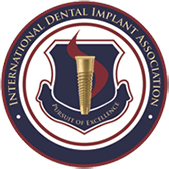
Genes have taken the blame for many health conditions. From sleep apnea, to cancer, to diabetes, genes have been linked to a host of health conditions and maladies.
With good reason.
Genes can play a significant role in the health of a person and their family, but genes should not bear the blame for every health issue that arises. Instead, a closer look at genes and environment yields the clearest picture of an individual’s health.
How Genetics Impact Oral Health
Genetics impact oral health in the same way that genetics influence overall health. Your genes provide a blueprint for your body to follow. From immune response to tumor development, genes are an important determiner in how your body responds to stress and damage.
Despite the role genetic factors play in oral health (or a lack of oral health), they cannot take the full blame. Instead, your genes interact with environmental factors to create the basis for your health.
Genetic Predisposition Versus Genetic Certainty
One of the greatest misunderstandings regarding genetics is the idea of genetic predisposition versus certainty. Having certain genes may predispose you to have certain health issues, but will not guarantee that you experience those issues.
Think of it this way: if you are in a field of wildflowers, you are more likely to be stung by a bee than if you were sitting in your living room. Being in the field does not guarantee that you will be stung by a bee. Genetics operate on the same basic framework.
Genetics and Your Environment
If genes predispose you to have certain dental health issues and the environment is ideal, you may be more likely to experience gum disease or dental caries than someone who has a hospitable environment and a family history of pristine oral health.
Having a family history of tooth decay and gum disease (or other oral health issues) does not doom you to a lifetime of cavities and bleeding gums. Genes may simply mean you have to pay closer attention to oral care routines.
Genetics and Bad Teeth: the Real Culprits
Now that we have established the real way that genes influence your oral health, let’s evaluate the real culprits in declining oral health. Diet, good oral hygiene, and mental health can all play a role in the health of your teeth and gums.
Diet
Many dentists will urge you to brush and floss your teeth, but not as many will urge patients to improve their diets as a whole. Although regular dental cleanings, brushing your teeth, and flossing can help, an unhealthy diet can make improving your oral health difficult.
Eating plenty of healthy, whole foods and limiting sugars and processed foods can diminish your exposure to food components that lead to tooth decay and gum disease.
Oral Health Routines
Oral health routines can also negatively contribute to the health of your mouth. Not brushing your teeth at least twice per day makes room for food and plaque to build up and feed the bacteria in your mouth. Over time, buildup can lead to receding, inflamed gums and tooth decay.
Some dental products are also too harsh on the mouth. Extremely hard-bristled toothbrushes can actually tear away your gums and do more harm than good in your efforts to support your oral health.
Stress and Mental Health
Although stress may not seem to impact your teeth, mental health can impact your oral health! Chronic stress can lead to grinding your teeth, which can eventually cause receding gums. Untreated mental health can lead to stress or comfort eating, which can also contribute to damaged teeth and gums.
While it may not always seem to be the case, your body and mind are connected. Declining health in one area can have a direct effect on other areas, and your oral health is not immune.
Are Bad Teeth Hereditary?
Although many people attribute their run-ins with oral health to family history, genes alone are not responsible for issues with your teeth and gums. If you are concerned about the health of your teeth and gums due to your family history, reach out to one of our 3 locations today to learn how you can support your oral health.





